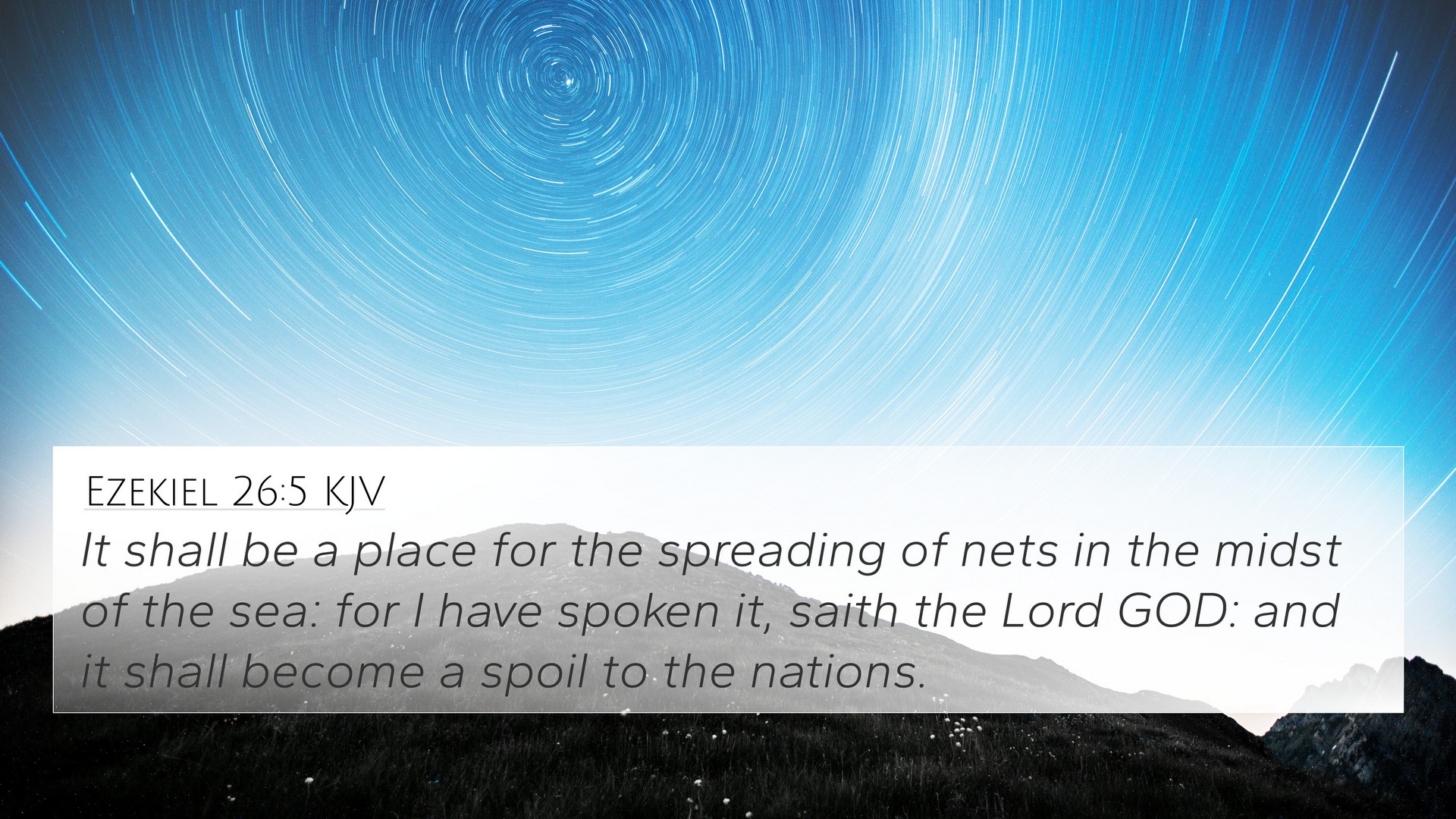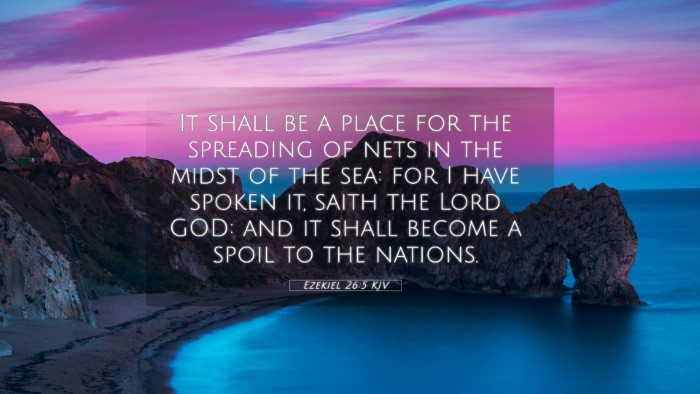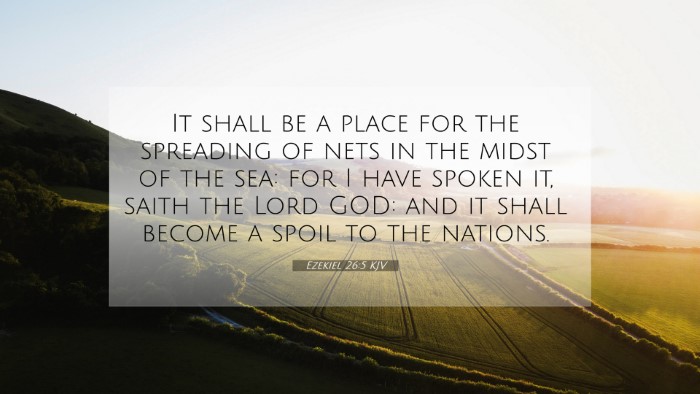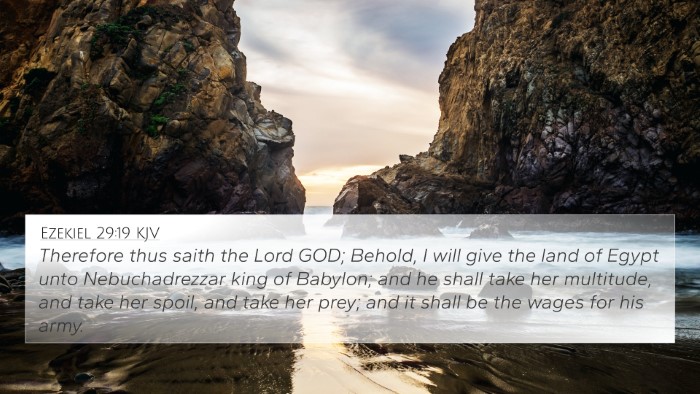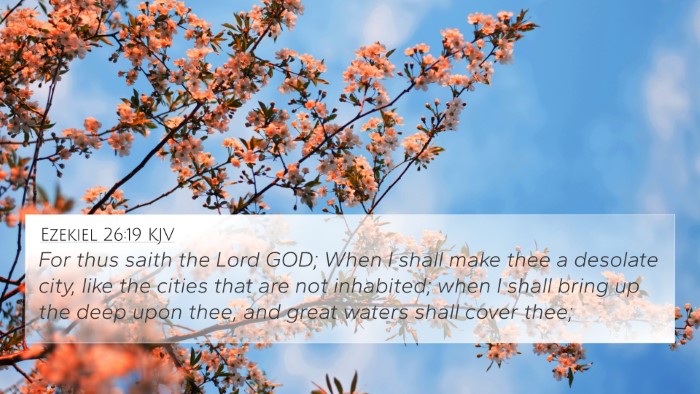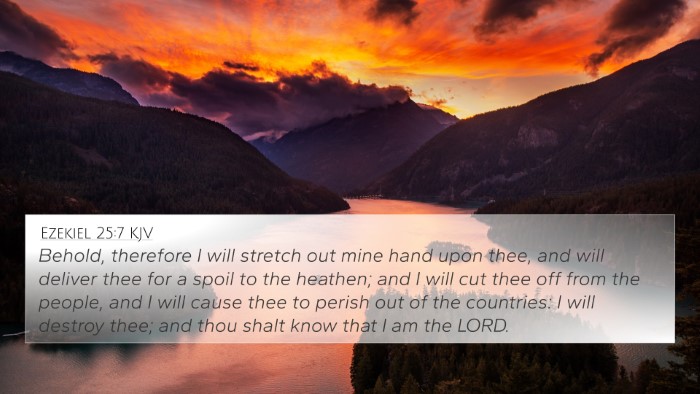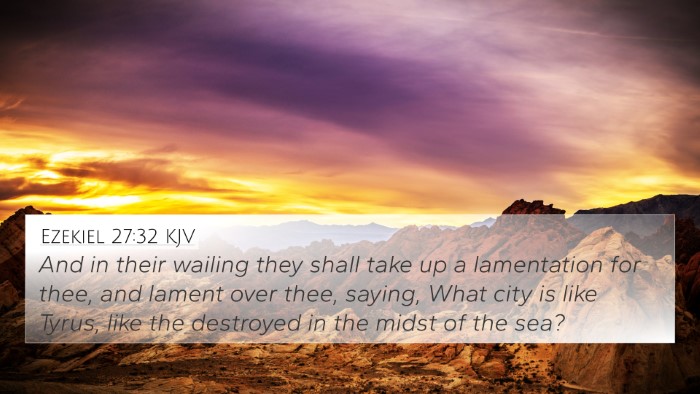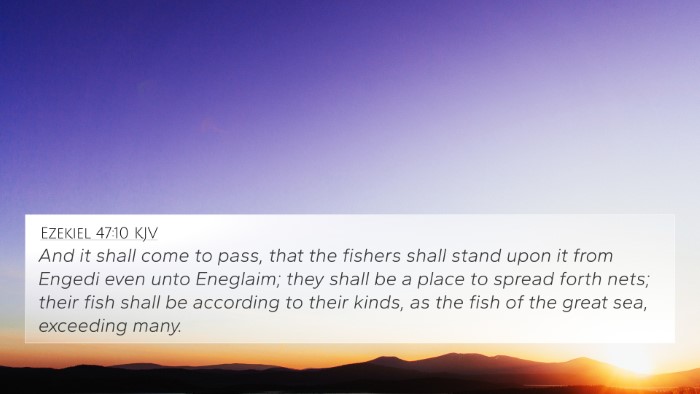Ezekiel 26:5 - Summary of Meaning and Insights
Ezekiel 26:5 states: "It shall be a place for the spreading of nets in the midst of the sea; for I have spoken it, saith the Lord God: and it shall become a spoil to the nations." This verse conveys God's declaration regarding the fate of Tyre, a wealthy and powerful city known for its trade and maritime activities. Understanding the nuances of this verse requires a comprehensive analysis through the lenses of several commentaries, including those by Matthew Henry, Albert Barnes, and Adam Clarke.
Contextual Analysis
The context of Ezekiel 26 is the prophecy against Tyre, aimed at illuminating its impending destruction due to its pride and its role in oppressing Israel. Biblical scholars emphasize that this chapter serves as a solemn warning not only to Tyre but also to all nations that oppose God's covenant people.
Commentary Insights
Matthew Henry's Commentary
Matthew Henry notes that the phrase "spreading of nets" symbolizes the desolation that awaits Tyre. He elaborates that just as a fishing ground becomes desolate when stripped of its abundance, so will Tyre become desolate when conquered. This imagery reflects God’s judgment and the transformation of Tyre from a bustling city to a mere ruin, highlighting the sovereignty of God in controlling nations and their fates.
Albert Barnes' Notes
Barnes emphasizes the strategic importance of Tyre's location by the sea. He explains that the destruction foretold here serves as a metaphor for Tyre’s resources being rendered useless, similar to a fishing ground devoid of fish. According to Barnes, such language foreshadows the comprehensive defeat Tyre will face at the hands of neighboring nations, reinforcing the theme of divine retribution for pride and unfaithfulness.
Adam Clarke’s Commentary
Adam Clarke offers a detailed explanation of the literal interpretation of the verse. He describes how nets used for fishing become a symbol of Tyre's future as a desolate area. Clarke also posits that this prophecy signals a broader theme in scripture about the inevitability of divine judgment against nations that stand opposed to God's will.
Thematic Connections and Cross-References
To enhance our understanding of Ezekiel 26:5, we can draw connections with other parts of the Bible. Here are some relevant cross-references:
- Isaiah 23:1-2 - Describes the lament for Tyre's downfall.
- Jeremiah 25:22 - God’s pronouncement of judgment against various nations, including Tyre.
- Ezekiel 27:27 - Further illustrates the desolation of Tyre and loss of trade.
- Amos 1:9 - God's judgment on Tyre for their actions against Israel.
- Zechariah 9:3-4 - Foretells the destruction of Tyre's wealth and power.
- Matthew 11:21 - Mentions the fate of cities that do not repent, connecting the theme of judgment.
- Revelation 18:17-19 - Symbolic of the fall of Babylon, likened to the fall of Tyre.
Interpretations and Applications
This verse serves as a poignant reminder of the fragility of human pride and strength. The downfall of a mighty city like Tyre illustrates the overarching biblical theme that no power can stand against God's sovereign decree. For modern readers, the application is twofold:
- Humility: It calls for a heart of humility before God's will.
- Awareness: It encourages self-examination regarding how we respond to God's authority and the welfare of others.
Conclusion
Ezekiel 26:5 encapsulates powerful imagery and prophetic warning that resonates throughout the Scriptures. Utilizing tools for Bible cross-referencing can greatly enrich our study of this verse, revealing interconnected truths throughout the Bible. By understanding these connections and the context provided by the commentaries, readers can appreciate the layers of meaning within this warning against Tyre and its application to broader biblical themes.
